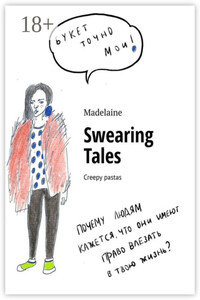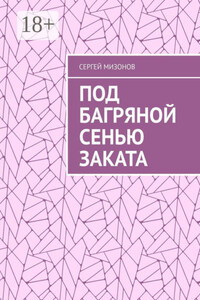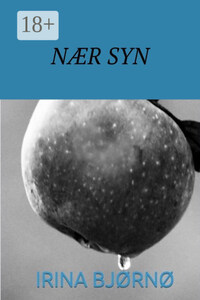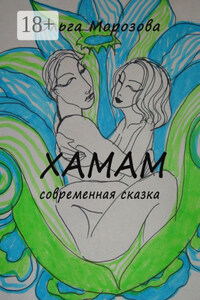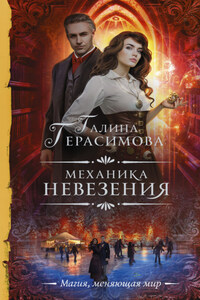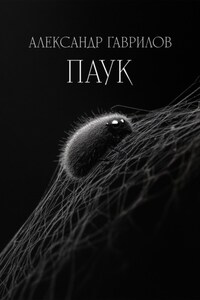Translator Vladislav Yuldashev
Illustrator Madelaine
© Madelaine, 2024
© Vladislav Yuldashev, translation, 2024
© Madelaine, illustrations, 2024
ISBN 978-5-0053-1852-7
Created with Ridero smart publishing system
Where did the Russian swearing come from? It is not known exactly, but Peter 1 also handed out nicknames to his funny courtiers. In our ancestors, swear-word drove away evil spirits. According to one version, the swear-word appeared from the Mongol-Tatars. In those days, the unbelieving pagans, with whom the church fought, swore. The Mongol-Tatars were not Christians, and due to the Russian bad mentality, more often, in everyday life, it was understood that they did not talk, but swear. It was these infidels, Hordes, Basurmans and pagans who taught the Russians to swear. Thus, Mongolia is the birthplace of the Russian swear-word. Buryats are one of the Mongol-speaking peoples, hence the swear-word comes from Buryatia. One of the old designations of the swear-word is “kutah”.
However, Russian swear-word itself has Slavic roots. The words were borrowed from the Turkic languages: sheepskin coat, bazaar, money.
Swearing in Russia is respected, cool, is a sign of leadership. Today it is very polysemous and allows you to compose many bad words from one root, where one word often has more than one meaning. Therefore, there are no full-fledged analogues of Russian swear-word in foreign lexicons. You can safely refer to swear-word culture as a common human cultural heritage. Although the use of swear-word is not allowed by public morality, history knows many positive swear-word phenomena. This book of Russian swear-word fairy tales is the best confirm swear-word of this.
It is in Russian strong expressions that the gift of folk language creation is manifested. Recently, more and more often, obscene words are quite cute and, even, weird and are a good substitute for unnecessary expressions. A tribute to fashion. For example, these are: Japanese mom, damn it. Only in our language can one find such a variety of newly formed neologisms. Its unique feature: talented Russian common people who come up with funny words and expressions in the hope that a new swear-word will supplant another swear-word. This trend has been observed since the late 1990s. Studying this topic, I collected swear-worderial on three such books (which have not been written), but I will present you one.
Chapter 1 Modern Flash Language or Swearwords
The fishermen talked about her. Like, when they went fishing with an overnight stay somewhere between Rossosh and Tula, this “hut” flew to them. Such a bird, no more than an average perch, singing. The men were poor. And in general they were not very good. The tents were set up and insulated with reeds. So, what kind of huts it turned out (like Lenin once did). Hence the “hut”. And the ruble because the wild bird ate them in rubles like a crow. The jokers-men will fill her with a handful – she will eat it. The men did not keep warm, so they fed the bird in full. But how did she manage to eat copper rubles? Unclear. Everything would be fine, but the men returned from fishing as millionaires. Telling an amazing story about a hut-bird because of which the whole tree on which she was sitting bloomed with real banknotes.
Driving through snowy Russia somehow, in this winter I heard another story. New Year’s trees told. In one of the villages, I don’t remember the name (Pukhovo, maybe), there are many of them all over Russia, among the forests close to the unprepossessing houses approaching – an unusual rabbit got into the habit. It was said that he, like a squirrel, could quickly soar on any, even the tallest tree, with its top reaching up to white clouds. Climbing, the rabbit flew down like an arrow. Then everything was repeated.
He came to elections, the first snow, Christmas or retirement, and other significant events. They called the rabbit Yoshka. In honor of the tree, which he couldn’t climb because of the “furry paws” – and he fell. The case is so rare that I remember it. The rabbit’s name has become a household name. Because its jumping shadow – to events in the life of the village or any of its inhabitants.
This tale was born in the snowy mountains of the Caucasus. In a small Adyghe village. It’s about a proud young girl. Popularly nicknamed Skolopendrium. The legend about her is already our days. As if they saw her every snowy winter coming out from behind a rock in a hollow. In a flowered summer dress and hat, a fur vest, with a bouquet of spring flowers (different every time), with red hair tied in a long ponytail and bright scarlet lips. Comes out and stands in the snow – does not move. As a rock is immovable. At the sight of a man, she begins to seem to move towards him, but without reaching it disappears, always leaving behind the same rock. Dissolving into a whitish sky, merging with the earth on the horizon.
She never found a groom.
* As names go, it’s good enough.
